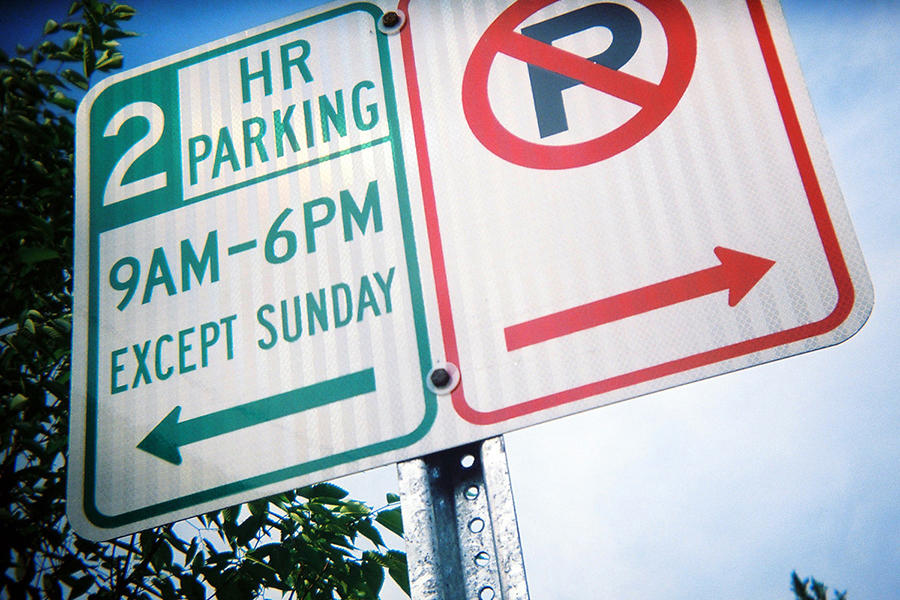Parking Fines Could Increase in Boston under New Walsh Administration Plan
Stiffer penalties for double-parking, failing to feed the meter, and several other violations are just one part of the mayor's strategy to decrease traffic in the city.

Two Hour Parking + No Parking by Steve Snodgrass via Flickr/Creative Commons
Between street cleaning, snow routes, and bus lanes, following all of Boston’s parking regulations can be a headache and a half. And now, the city is looking to stiffen penalties for drivers who can’t keep up with the rules.
On Monday, city officials announced several steps intended to reduce the gridlock traffic that plagues Boston. Included in the strategic package are higher fines for parking violations, extra street space for buses and bikes, and specific spots for ride-share vehicles to pull over, according to the Boston Globe.
The plan includes steeper penalties for 11 common parking violations, and infractions like double parking, parking in a residential area, and failing to feed meters appropriately would all hurt drivers’ wallets more acutely. Under the new regulations, the penalty for each of those tickets would increase from $55 to $75; $40 to $60; and $25 to $40, respectively, according to WBUR. The steepest fine increase—from $40 to $90—is for parking during overnight street cleaning.
Though the fines may seem high for drivers, Chris Osgood, the city’s chief of streets, told WBUR that complaints related to parking violations have “skyrocketed over the last four years.” In 2014, Osgood said, the city fielded around 4,500 parking-enforcement requests. Since then, the calls have increased by 678 percent to more than 35,000 last year. Osgood told WBUR the steeper fines could generate $5 million to be reinvested in Go Boston 2030, a package of 58 long-term transportation projects the city aims to tackle by 2030.
In addition to the fines, the new strategic plan includes money to resurface roads and sidewalks; a focus on traffic signal upgrades; and added funding to improve the experiences of bikers and pedestrians, according to the Globe.
Transportation advocates lauded the city’s safety-focused plan as a forward-thinking model for other booming metropolitan areas.
“Today’s investment by Mayor Marty Walsh shows Boston is serious about planning for the future and achieving a safe, efficient, sustainable transportation network that is less dependent on cars,” Marc Ebuña, the president of the nonprofit TransitMatters, said in a statement. “It’s a reminder that Investment is necessary to address the growing mobility needs of our region and sets an example for other cities and towns seeing the impact of growth.”
The plan, if approved by City Council, will go into effect on July 1.

